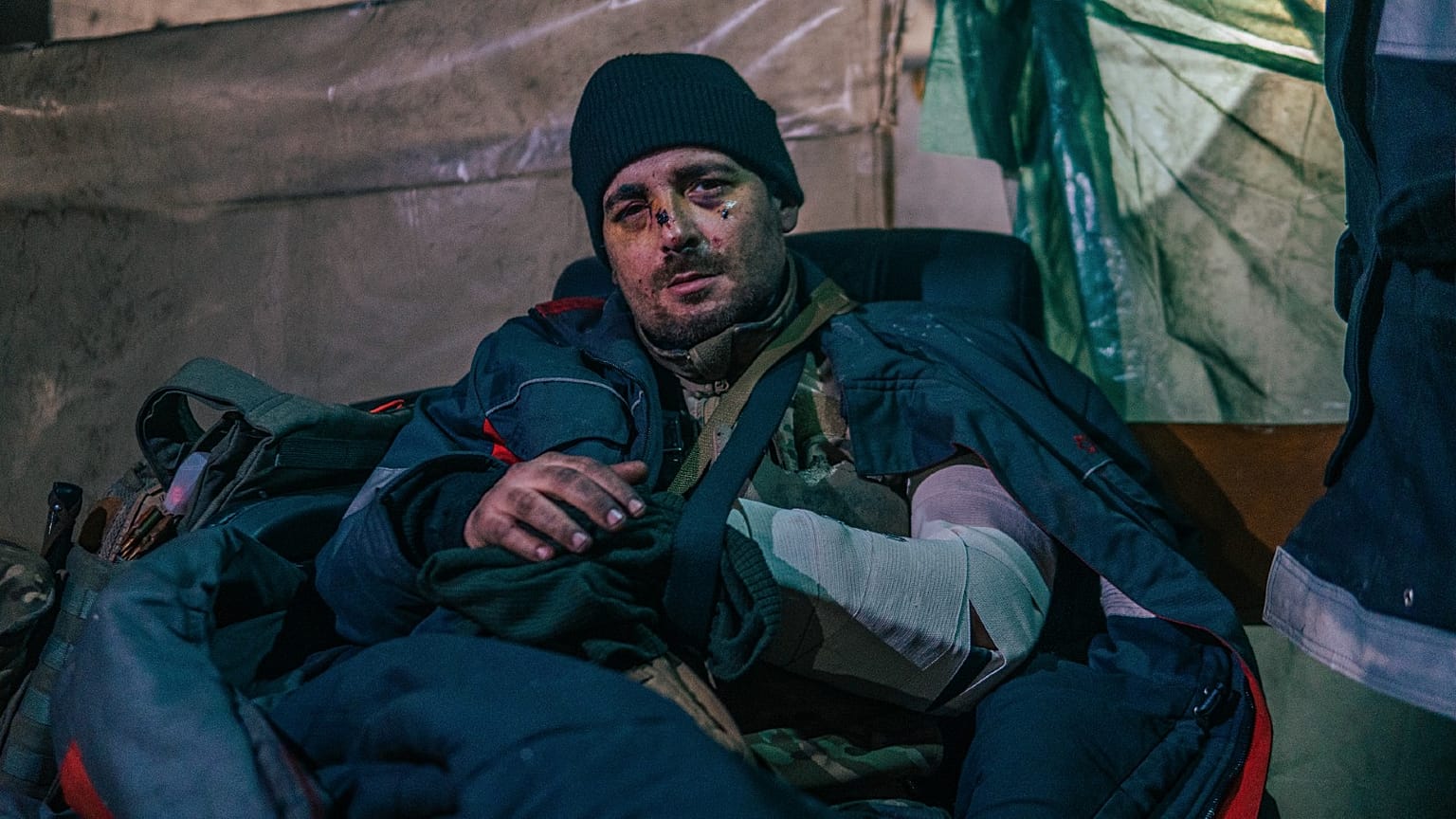Moscow has repeatedly portrayed the Azov Regiment as a Nazi group and accused it of atrocities, without producing evidence to back up the claims.
Russia’s top court has classified Ukraine’s Azov Regiment as a terrorist organisation.
 ADVERTISEMENT
ADVERTISEMENT
 ADVERTISEMENT
ADVERTISEMENT
The regiment is lionised in Ukraine for defending the country and in particular Mariupol, but they are reviled by Russian President Vladimir Putin's Kremlin as a band of Russia-hating far-right nationalists.
The court's move could pave the way for terror charges to be made against fighters captured in Mariupol’s steel plant.
Since their surrender in mid-May, scores of Azov soldiers have been held prisoner by Russia and its separatist allies.
Russian authorities have opened criminal cases against them, accusing them of killing civilians. The addition of terrorism charges could mean fewer rights and longer prison sentences.
In a statement, the Azov Regiment dismissed the ruling, accusing the Kremlin of “looking for new excuses and explanations for its war crimes.”
It urged the US and other countries to declare Russia a terrorist state.
The Azov soldiers played a key part in the defence of Mariupol, braving relentless attacks from Russian forces for weeks at the southern port city’s steel mill. Ukrainian President Volodymyr Zelenskyy hailed them and the other defenders as heroes.
Moscow has repeatedly portrayed the Azov Regiment as a Nazi group and accused it of atrocities, without producing evidence to back up the claims.
The regiment, a unit within Ukraine’s National Guard, has a chequered history. It evolved from a group called the Azov Battalion, formed in 2014 as one of many volunteer brigades created to fight Russia-backed separatists in eastern Ukraine. The battalion drew its initial fighters from far-right circles.
While its current members reject accusations of extremism, the Kremlin has seized on the regiment’s right-wing origins to cast Russia’s invasion as a battle against Nazi influence in Ukraine. Russian state media has repeatedly shown what it claimed to be Nazi insignias, literature and tattoos associated with the regiment.
Last week, dozens of Ukrainian POWs, including Azov fighters from the steel plant, were killed in an explosion at a prison barracks in Olenivka, an eastern town controlled by pro-Russian separatists. Separatist authorities and Russian officials said the attack Friday killed 53 Ukrainian POWs and wounded another 75.
Moscow and Kyiv have blamed each other for the attack, with both saying it intended to silence the Ukrainian prisoners and destroy evidence. Establishing the truth has been difficult for Kyiv due to a lack of access and information, according to Dmytro Lubynets, Ukrainian Parliament Commissioner for Human Rights.
"We do not have access to the territory. We do not have access to the people who have been affected there,” Lubynets said. “We have no direct communication with the Russian side. All the information we collect is conditionally verified."
Ukraine has appealed to the United Nations and to the International Committee of the Red Cross for help in investigating the blast and to find out more about the condition of the injured.
ICRC spokesman Oleksandr Vlasenko told the AP that the organization was currently negotiating with the Russians regarding visiting Olenivka. ICRC staff want to see everyone held there, make sure those wounded in the blast get proper medical treatment, and look at the bodies of the dead.
Moscow also opened a probe, sending a team to the site from its Investigative Committee, the country’s main criminal investigation agency. The state-run RIA Novosti agency claimed that fragments of U.S.-supplied precision High Mobility Artillery Rocket System rockets were found at the site.














